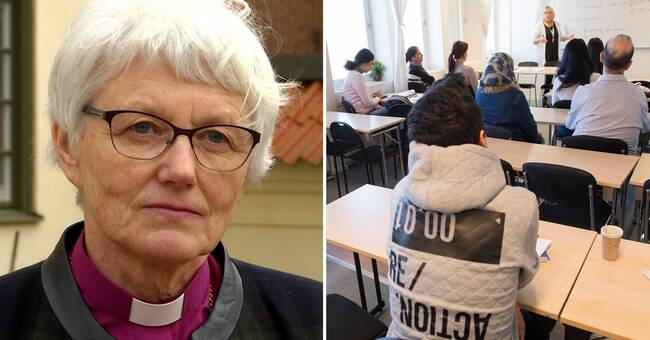The proposal to introduce a language requirement for citizenship in Sweden is one of the points in the January agreement between the Social Democrats, the Green Party, the Center Party and the Liberals.
Right now, the proposal is out for consultation and the relevant authorities and actors have the opportunity to submit comments on the proposal, which the Church of Sweden has done.
- I myself am an immigrant and know how important it is to learn the language.
At the same time, it is impossible to ignore the fact that there are different conditions, says Antje Jackelén, archbishop.
Risks to disadvantage certain groups
The Church of Sweden believes that a language requirement for citizenship risks increasing segregation and particularly affecting women and the low-educated, and refers to a government inquiry into the issue published in January.
- We must work to create the best conditions, rather than linking the protection that a citizenship is, to a certain language level, says Antje Jackelén.
The January parties describe the language requirement as a way to increase the incentives to learn Swedish, and hope that it will raise the status of Swedish citizenship.
In Denmark, Germany and the Netherlands, among others, similar requirements are already set for citizenship, but so far research on the effects of language requirements is limited.
The church's statement is met with criticism The
fact that the Church of Sweden is now taking a stand on the issue has provoked reactions.
On Twitter, they are criticized for being too political.
Why does the Church of Sweden speak out on a political issue?
- When it comes to migration issues, we have issued a lot of comments.
Through the work in our parishes, we have a competence that we think we must use in the service of society, says Antje Jackelén.
April 15 is the last day to send in a consultation response, and after that the government will make a decision on how it intends to proceed with the matter.
The plan is for the proposal to be presented to the Riksdag during this term of office, and come into force on 1 January 2025.

